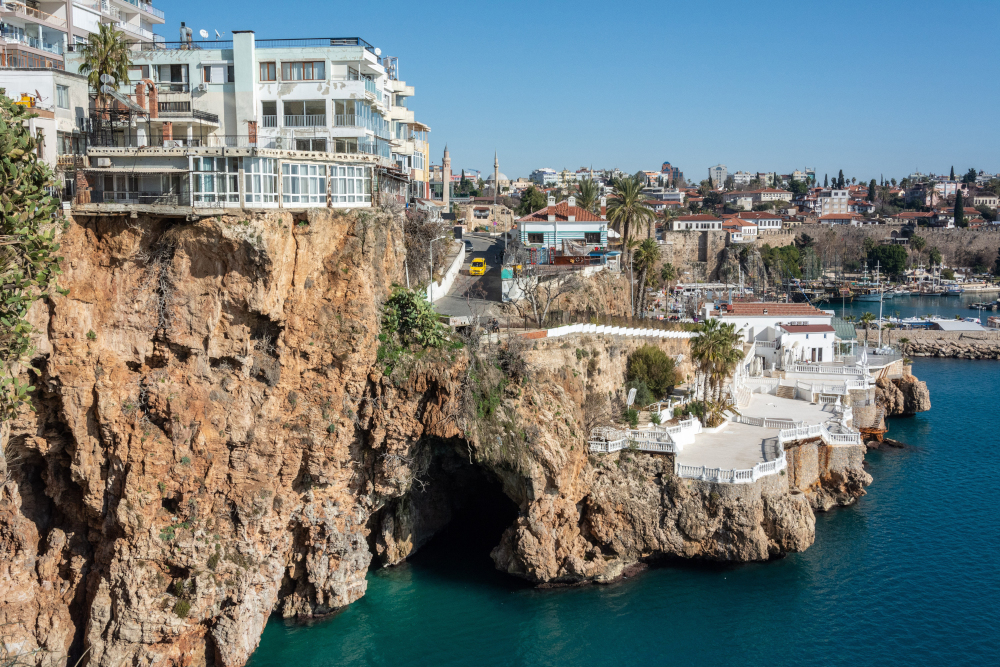Turkey is a land of enchanting contrasts, where sipping coffee in Europe, crossing a bridge, and having lunch in Asia can all happen within a single afternoon. This unique geographic and cultural tapestry invites travelers to explore a place that thrives at the intersection of history, civilization, and culinary delight. For first-time visitors, Turkey is an adventure waiting to unfold, offering something for everyone—history buffs, food lovers, and those seeking stunning landscapes alike. Here’s what you need to know to maximize your journey through this captivating nation.
The Best Time to Visit
Turkey beckons year-round, but spring (April to June) and autumn (September to October) are particularly inviting seasons for your visit. Spring brings comfortable temperatures around 20°C, allowing for leisurely sightseeing without the swarming summer crowds. Autumn offers warm days and cooler nights, making it perfect for exploring famous sites and enjoying local dishes peacefully.
Summer, particularly July and August, is ideal for beach lovers, with temperatures often soaring into the mid-thirties. However, this season can lead to a tourist-packed experience, especially along the popular coastal towns. On the flip side, winter (November to March) provides a unique city escape; Istanbul, with daytime temperatures between 8°C and 11°C, transforms into a quieter, more intimate landscape, perfect for relaxed exploration.
Regardless of when you visit, there is a wealth of Turkey travel packages catering to diverse preferences, ensuring a memorable experience no matter the season.

The Must-Visit Spots
Turkey is a treasure trove of attractions that capture its rich cultural heritage and stunning natural beauty.
Here are some must-visit spots that should be high on your itinerary:
Istanbul
Istanbul, the heart of Turkey, is renowned for its striking architecture and abundant history. As the city straddles both Europe and Asia, it’s a melting pot of diverse cultures. Key attractions include the magnificent Hagia Sophia, the captivating Blue Mosque, and the bustling Grand Bazaar, each offering a glimpse into the city’s complex past. Strolling through its streets often feels like walking through a living museum, reflecting influences from Roman, Byzantine, and Ottoman eras.
Cappadocia
Stepping into Cappadocia feels akin to entering a whimsical fantasy novel, expounded through its surreal landscapes of breathtaking valleys and unique rock formations. Taking a hot air balloon ride at sunrise offers an unforgettable perspective of this otherworldly terrain, and hiking through its ancient cave dwellings reveals a profound sense of adventure.
Pamukkale
Pamukkale, or “Cotton Castle,” captivates visitors with its stunning white terraces formed by mineral-rich thermal waters cascading down the hillside. This natural wonder is not only an aesthetic marvel but also a site of historical significance, as it houses the ancient ruins of Hierapolis. Visitors often relish a dip in Cleopatra’s Pool, steeped in myth and history, making it a perfect blend of relaxation and exploration.
Antalya
Antalya strikes a harmonious balance between sun-kissed beaches and rich cultural experiences. This coastal gem invites you to explore ancient ruins in the morning and unwind at luxurious beach clubs come noon. Wander through the charming old town, indulge in local cuisines, or savor the golden sands of Lara Beach, making this city a multifaceted destination.

Ephesus
A visit to Ephesus, one of the most well-preserved ancient cities, is a journey through time. Majestic ruins, including the grand amphitheater and the Library of Celsus, transport you back to the days of the Roman Empire. Even for those less inclined towards history, the nearby beaches and picturesque countryside enhance the overall experience, ensuring that Ephesus is a must-see destination.
Where and What to Eat
Turkish cuisine is as diverse as its landscapes, deserving of a dedicated exploration all its own. With an impressive range of dining options, including 14 Michelin-starred restaurants, Istanbul is the epicenter of gastronomic delight. The two Michelin-starred restaurant TURK Fatih Tutak shines with its inventive approach to traditional Turkish dishes, while Mikla boasts spectacular views and a refined Anatolian menu. For something unique, check out Sankai by Nagaya for a fusion of Turkish and Japanese flavors.
In addition to high-end dining, traditional Turkish fare is an essential part of the cultural experience. Don’t miss out on:
- Kebabs: A cornerstone of Turkish cuisine, these succulent skewers feature marinated meats grilled to perfection—each region offering its unique twist.
- Mezze Platters: An assortment of small dishes, perfect for sharing, often includes hummus, dolma (stuffed grape leaves), and sigara böreği (cheese-stuffed pastry), making them perfect for sampling different flavors.
- Baklava: This sweet treat layers flaky pastry with nuts and honey, an essential end to any meal.
- Turkish Coffee: Thick and aromatic, this coffee is more than just a drink; it’s an experiential ritual best savored slowly.
Getting Around
Exploring Turkey is surprisingly straightforward, thanks to its well-developed transportation infrastructure. Major cities like Istanbul have modern airports and numerous domestic flights, while long-distance buses are both comfortable and economical. Taxis and ride-hailing apps offer hassle-free transportation for short trips. Most urban areas are equipped with efficient minibuses, metros, and trams. For those who prefer the freedom of the open road, renting a car is also a great option.
Those seeking a stress-free exploration might opt for luxury travel packages that include guided tours and private transfers, allowing you to immerse yourself in the splendor of Turkey without the logistical concerns.
Quick Tips for First-Timers
Regardless of whether you’re flying solo or traveling with a group, some essential tips can help pave the way for a smooth adventure:
- Be prepared with Turkish Lira, as many local markets and cafés prefer cash, even if credit cards are widely accepted.
- The primary language is Turkish. While English is common in tourist areas, learning a phrase or two can enhance interactions.
- In religious sites, such as mosques, dress modestly and remember to remove your shoes before entering to show respect and adhere to local customs.

